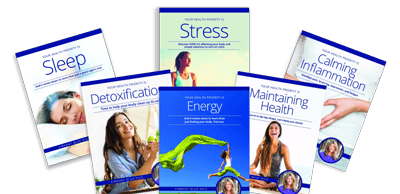As I continue to navigate life after the death of my 12-year old son Max, I am often disarmed and surprised when people compliment me for how well I am navigating grief.
There are two reasons for this and it turns out they are correlated:
Reason One: I still feel like a hot mess on the inside. Not a day has passed since the car accident on August 27, 2018 that I do not feel deep sorrow and grief. I have just learned to live with chronic pain, which means I feel the emotion and I keep moving and creating. I detail my daily strategies for navigating anxiety and grief here.
Reason Two: It turns out that this ability to feel tremendous pain and keep moving – along with other positive physical, mental and emotional traits like personal competence and elevated emotional stability – was found to help individuals deal with life challenges.
These positive traits can be both measured and enhanced to help build resilience and improve your response to unexpected curve-balls and trauma.
Measuring Resilience
In a recent interview with Functional Neurologist rock star Dr. Robert Melillo (for my upcoming Resilience Roadmap Summit), I learned that the protective factors that contribute to resilience can be measured and often correlate with how an individual navigates trauma.
For example, as part of his patient intake, Melillo has new clients fill out an Adverse Childhood Experiences (ACE) questionnaire. The ACE study measures and correlates difficult or adverse experiences in childhood – including both “Big T stressors” like trauma and abuse and “Little T stressors” like neglect, parental divorce and household dysfunction – with a greater risk of both physical and mental health problems during adulthood. Research finds that “the risk increases significantly for people with larger numbers of adverse experiences in their childhood.”
At the same time, Melillo has new clients fill out the Resilience Scale, a 24 question assessment of protective factors that prevent or diminish the impact of trauma. Melillo finds that even if a client has a high ACE score, a high score on the Resilience Scale often offsets or negates the physical, mental and emotional impact of trauma on the mind, body and spirit.
My goal is to help you bolster your resilience. The resilience scale shares measurable characteristics – including perseverance, self-reliance, equanimity, the sense that life is meaningful and a comfort level with existential aloneness – that help develop, nurture and enhance your ability to stay resilient in the face of any unexpected challenge that might cross your path.
Resilience is not something that you’re either born with or without. Rather, resilience develops as you grow, become more knowledgeable, and strengthen coping and self-management skills. Most important, resiliency can be learned and increased over time.
What is Resilience?
Resilience is often defined as the capacity to prepare for, recover from and adapt in the face of stress, adversity, trauma or challenge.
A higher capacity for resilience has also been shown to help manage emotions like anger, frustration, impatience, anxiety, grief and depression, which in turn helps to neutralize the mental and physical stress response. Emotions are the principal drivers of a number of key physiological processes involved in energy regulation.
Calming or preventing energy depleting emotions can help free up energy needed for adjusting to change and uncertainty. This is another reason that measures supporting physical health – including a nourishing diet, restful sleep and healthy detoxification – can help boost resilience as it frees up energy resources.
This enhanced energy can also strengthen and enhance your mental capacity.
The Resilience Scale™
The Resilience Scale™ was created by Gail M. Wagnild and Heather M. Young in 1987 to measure protective factors that prevent or help individuals deal with life challenges.
The 25 question Resilience Scale measures what is going right versus what is going wrong in your life. It measures strengths, such as qualities that enable you to adapt and overcome risk and adversity, rather than limitations.
Positively associated strengths measured on the Resilience Scale, such as a positive attitude, personal competence and emotional stability, has been correlated with physical health, morale and life satisfaction.
For example, when faced with a difficult situation, you have a choice. You can either choose to find a way to overcome it and open your heart and mind to opportunities for self-awareness, growth and self-improvement, or you can choose to feel victimized by your circumstances.
When you choose to view a challenge or obstacle as an opportunity for growth and resolve to handle your emotions in a healthy way, you are choosing a path of resiliency.
The following internal and external factors enhance resilience:
Internal
- Having a positive view of yourself and others
- Showing confidence in your strengths and abilities
- Being able to manage strong feelings and impulses
- Developing good problem-solving and communication skills
- Feeling in control
- Seeing yourself as empowered rather than victimized
- Coping with stress in healthy ways like exercising, as opposed to unhealthy ways like substance abuse
- Finding positive meaning in your life despite difficult or traumatic events
- Expressing gratitude
- Being optimistic and realistic
- Focusing on the present
- Reconnecting with your faith and religious traditions
- Creating plans and goals
External
- Maintaining close relationships with your family and friends
- Seeking help and accessing resources
- Helping others
Specific Resilience Scale™ Questions
Wagnild and Young include25 questions in their Resilience Scale™. Each question is designed to be rated for intensity on a scale of 1 to 7. You can find an interactive online version of the Resilience Scale here.
How Essential Oils Can Support Resilience
Essential oils help return the body to balance to conserve energy and support resilience. More specifically, helping to balance and support the areas of your brain that help you respond to stress – namely your nervous system and endocrine system – helps you naturally enhance your resilience.
For example, one of the most helpful strategies to boost resilience is the ability to pause, and thoughtfully consider a situation and your options for responding.
The parasympathetic branch of the autonomic nervous system shifts you out of the “fight or flight” response and allows you to feel safe so you can access your reasoning capacity and from a stable and clear mental and emotional space.
When you activate your parasympathetic nervous system, your mind and body relax, allowing for easier navigation through challenges and resistances at their onset. This, in turn, reduces the production of stress hormones and allows for happy and healing hormones to be produced which boosts resilience. It is also helpful and effective to use as“prep” before engaging in potentially stressful situations.
To trigger the parasympathetic state, simply apply a drop of the Parasympathetic® blend to the vagus nerve (behind the earlobe on the mastoid bone) before meals to stimulate the parasympathetic nervous system “rest-and-digest” state.
Often referred to as the “master gland”, the hypothalamus acts as the hormonal control center for neural and hormonal messages received from/sent to body and plays a key role in the body’s stress response. The production of growth hormones, sex hormones, thyroid hormones, and neurotransmitters such as serotonin, are all governed by the hypothalamus. It is constantly reading blood the levels of hormones, and adjusting resulting signals sent to the body to maintain internal balance (homeostasis). Chronic and prolonged stress can damage the hypothalamus’s ability to receive clear messages from the body which then impacts all outgoing endocrine and neural signals. Applying Vibrant Blue Oils Hypothalamus™ blend over the third eye may help reset the natural ability of the hypothalamus to send and receive clear messages to and from the body.
Our adrenal glands help determine and regulate the body’s stress response by secreting key hormones that regulate energy production and storage. Prolonged periods of stress can deplete our reserves of these hormones. Much like adaptogenic herbs, Vibrant Blue Oils Adrenal® blend helps increase the body’s ability to adapt to stress and maintain healthy adrenal function. Apply Adrenal® over the adrenal glands on the lower back (back of the body, one fist up from the 12th rib).
Emotion Balance™ Blends
Your thoughts and stress levels impact the limbic system which in turn throw off your immune system and hormones. It has been well researched that happy people have fewer stress hormones and a stronger immune systems. Emotion Support oils help you release negative thought patterns and emotions and affirm positive beliefs to buffers and protect you against the stress response that can weaken your immune system. My favorite emotion support blends are Liver Support™ to release anger, Small Intestine Support™ to support healthy boundaries, Spleen Support™ to release worries and bolster the immune system and Uplift™ for general joy and happiness.
Featured Blends:
Ready to get started? Click the links below to order today:
- Adrenal® available here
- Hypothalamus™ available here
- Liver Support™ available here
- Parasympathetic® available here
- Small Intestine Support™ available here
- Spleen Support™ available here
- Uplift™ available here
References:
- https://www.cdc.gov/violenceprevention/aces/about.html?CDC_AA_refVal=https%3A%2F%2Fwww.cdc.gov%2Fviolenceprevention%2Facestudy%2Fabout.html
- https://www.trueresilience.net/briefresiliencescale.aspx?Free=1&Free=1




